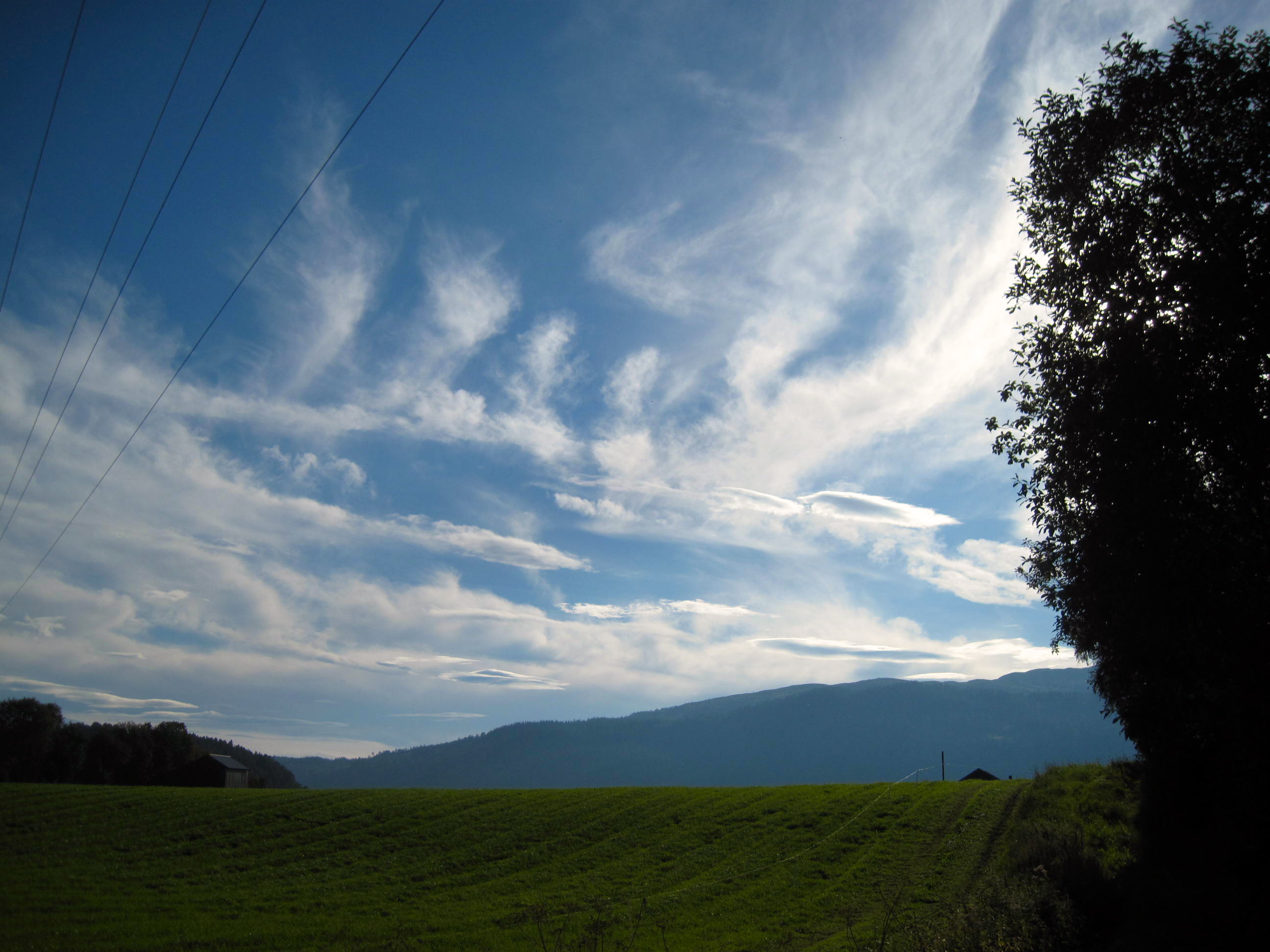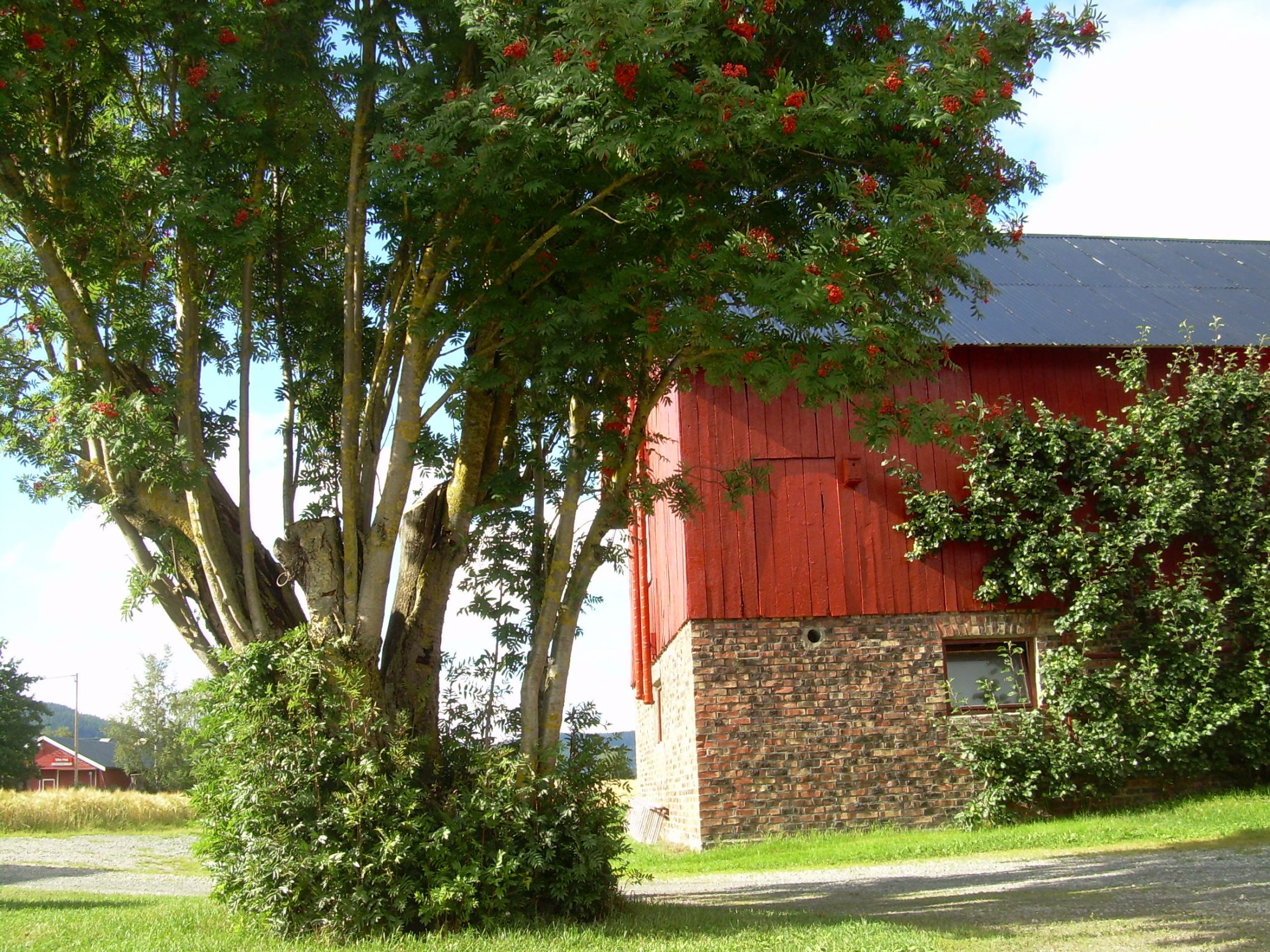I left Norway half a life ago, in 1999, so I can’t tell you what it’s like there nowadays, not really; I only make surgical visits—the airport, cars, the houses of family and friends—before going home to London. I love London—it took me a long time to figure out this harsh, demanding city, but I swear there’s no sight sweeter than the grey of the Thames through the window of a double-decker bus in the rain. But Norway is someone I grew up with: we’ve drifted apart but there are no hard feelings, and the familiarity is instant when we get together again. This country raised me. I know these people, their expressions and those traditional knits; I know the way the chest involuntarily swells a little when you look at that flag. That stuff is in you, like an organ nestled behind the liver.
But what does a country owe you? When the country that’s been my home for half a life shocked the world by voting for Brexit, the assurances I’d built my life on were suddenly gone. Europeans have been able to come and go since before I was born, so there was never any need to acquire citizenship; we were, I thought, the European family! But when Theresa May declared after the Brexit referendum that “if you believe you are a citizen of the world, you are a citizen of nowhere,” it was apparently me she was talking to. “You don’t understand what citizenship means,” she said.
I was still in shock when I started looking into British citizenship; I knew half of my life would be long enough to qualify, and it would solve the most pressing problem. But my heart sank when I realised that the problem was the other half: Norway wouldn’t let me become British without cutting me loose. And then I was angry; Norway doesn’t allow dual citizenship? These people, sitting pretty at the top of the world with their sky-high standard of living, one of the finest social security systems, all those happy people with their brown cheese and rose paintings and Easter skiing trips and all that oil underneath their seafloor. It was suddenly an exclusive club—if you don’t know the secret handshake you can’t sit with us. Scandinavia is known for Janteloven, the dark side of an otherwise beautiful concept of an equal society where you pull people up, sure, but also you keep people down if they get too ahead of themselves—why do you think I left in the first place? Norway has an enviable reputation in the world as a forward-looking country, but when it comes to openness it can be very black and white. Either you’re in, or you’re out.
But maybe not for much longer. A very important vote is scheduled in the Norwegian Parliament for tomorrow, an amendment to the Norwegian Nationality Act that’s likely to pass and permit dual citizenship, at long last. If it does, the new rules could come into effect just about in time to solve my Brexit problems, as well as bringing Norway in line with the world.
“To be born in Norway is like winning the lottery,” former Prime Minister Jens Stoltenberg once said, a quote that Norwegians will know, proud as we are of all the good things awarded to the people with the golden ticket. The law will increase the number of lottery winners; there are over five million formally-recognised Norwegians right now, but how many more will be added is unclear. The Norwegian Government doesn’t track the number of people trapped by the rule against dual citizenship, though there are currently about 61,000 people in Norway who would qualify for citizenship if they wanted it. Based on what happened when other Nordics opened for dual citizenship, the number of applications will probably be much lower.
This legal change won’t affect a large number of people, but for people who left Norway years ago, like me, it would be life-altering. People have suffered the real-life consequences of this legal roadblock for years: Norwegians who grew up abroad and lost their citizenship due to absence, for example. Adding insult to injury, about half those who apply for dual citizenship with Norway are actually granted permission because of arbitrary yet very specific loopholes (such as when half-Norwegian siblings who have different birthplaces find that it lands them in different legal categories where one of them can have dual citizenship but not the other).
My outrage, here, might probably my most Scandinavian trait: it shocks me, this kind of injustice—this kind of contradiction!—in a country usually driven by a sense of practicality. It’s one thing to be unfair. But this is illogical.

The principle of single citizenship has its roots in historical memory, by the way; Norway is Annerledeslandet, the Country of Otherness, and it’s something taken deeply to heart. The eponymous poem by Rolf Jakobsen, the distinguished Norwegian writer, speaks of the people “born to this country, bred by mountains and oceans in the grey light of time; a strict, nearly merciless home.” It’s a moving poem. I first heard it in the run-up to the 1994 referendum on EU membership, which at the time I believed would be a mistake—if we don’t hold on to our uniqueness, then who are we? But I was 14 years old then. As the poem declares, struggle leads to pride, and to embracing your difference even when that means being stubborn, and maybe to your own detriment (Norway still isn’t a full member of the EU).
“We don’t bow as deeply as our neighbors,” as the poem declares; “It’s far too steep here.”
Because the country had to elbow its way into being, you can understand its nationalist insistence, even if you can’t altogether forgive it. First united around 872 by the Viking king Harald Fairhair, Norway’s population was so decimated by the Black Plague in the 14th Century that it succumbed into a union first with Denmark and later Sweden, and would spend centuries languishing as a backwater to the ruling powers. Independence would only come again with an amicable dissolution of the Swedish union in 1905. Single citizenship makes more sense if you’re trying to forge a young nation; forcing people to choose make more sense in an age of war.
Then again, the world may never have been as simple as nationalists would like to think. One of the best known symbols for Norway is an eight leaf rose motif known as the selburose, often knitted into mittens and jumpers, and growing up I had several, lovingly knit for me by my grandmother. But this iconic Norwegian shape isn’t actually Norwegian after all—it’s actually a mix of Christian and Islamic patterns descended from Coptic and Byzantine art. Emma Sarappo writes in The Atlantic: “Precursors arose in the ancient Fertile Crescent and evolved over centuries throughout Europe. Then Norway made the symbol fashionable and helped it spread, thanks largely to accidents of industrialism and nationalism.” The selburose actually arrived to Norway via the Silk Road, along with the art of knitting itself.
I’ve thought a lot about my reluctance to give up my Norwegian citizenship. It would solve practical problems for life in Britain, and though it would make it much harder to move back to Norway, it’s been decades; I don’t actually think I ever will. But it’s emotional. It tugs on the heartstrings of roots, of belonging, of the things we take for granted about what doesn’t change. And asking me to give that up seems cruel.
Maybe it’s Scandinavian pragmatism again. Maybe it’s that distinctly Norwegian stubbornness. But can’t help but feel I should be able to come and go as I choose. Norway should be gracious and forgive me my absence, or my foreign dalliances. Family does that, because that’s what we are.
Maybe someday, if I get my two passports, I will feel the same sense of trust and belonging with Britain too—even if the past two and a half years have left me sore. But as the Norwegian Parliament vote approaches, I feel achingly apprehensive: I need this law for practical reasons and for the sake of my damn heart. I remember waking up on the morning after Brexit and reaching for my phone, hitting refresh on the BBC news page. I can still recall the physical punch in the gut that followed. We may all like to think we don’t need anyone or anything but of course, we do. It’s true for people and it’s true for countries. Britain is racing towards the abyss right now, but no matter what Theresa May thinks, we are all citizens of the world. And I hope Norway will grow up a little too: being open to the world is how you grow and prosper; I need the country that raised me to tell me that no matter how far I go or how long I stray, it would never let me go.

Jessica Furseth






